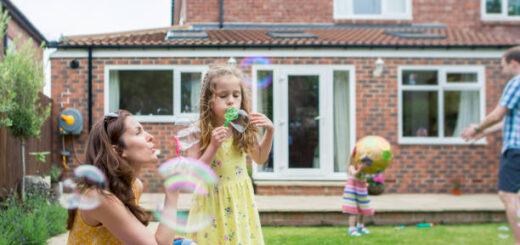UNHEALTHY RELATIONSHIP PATTERNS IN YOUR FAMILY
How we view ourselves and others and how we perceive the world has a lot to do with our family of origin. Children should grow up in a supportive family that makes them feel valued and worthwhile. Children learn to express their feelings and concerns. Children raised in positive environments are more likely to have healthy and open relationships as adults. Family of origin can include parents, grandparents, aunts/uncles, and other family members who provide a loving environment. Our cultural identities, such as the racial and ethnic groups we identify with, religious affiliations, or the impact of privilege or marginalization, also influence our definition of family.
Families may not be able to meet all their children’s physical and emotional needs. The family’s communication patterns may also limit the child’s ability to express their feelings and needs. These children are more likely to feel low self-esteem as they grow up in these families and not take their needs seriously. They may also form unhappy relationships with their parents as adults.
College offers the chance to reflect on ourselves and the effects of our families on our growth. It is possible to recognize both adaptive and dysfunctional family patterns that have influenced our growth.
Unhealthy Family Dynamics
The family of origin provides the foundation of attachment style, communication patterns and boundaries in relationships, and emotion regulation and self-worth. Sometimes parents and caregivers don’t understand why certain family dynamics are unhealthy or lack the tools to fix them. It is important to be aware of the effects of unhealthy patterns on your own life.
Parents may have one or both of these addictions.
One parent may threaten to use violence or use it as a primary control method. Children might witness violence or be made to punish siblings. Or they may have to live with the fear of violent outbursts.
Either one or both parents abuse the children and treat them as possessions. Their primary purpose is to satisfy adults’ emotional and physical needs (e.g. to cheer up a depressed parent or to protect a parent).
One parent is unable or threatened to withdraw financial or basic care for their children. Emotional support is also lacking in one or both of the parents.
The children are often under the control of one or both parents. These families often adhere to a certain belief system (religious or financial) and are rigidly controlled by one or both parents. There is great variability in the frequency of dysfunctional behaviours and interactions in families and the types and severity of these dysfunctions. If these patterns are the norm, they can foster abuse and neglect. Children may:
- Do not be forced to side with your parents in disputes between them.
- When what is being said is contrary to what is occurring, you can experience “reality shifting”. A parent denies what the child sees or discusses past events differently from what occurred.
- Do not ignore, discount, or criticize someone for their thoughts and feelings.
- Parents who are too intrusive, involved and protective.
- Parents are too distant from their children and not involved in their lives.
- They may have too much structure and demand on their time, friends, or behaviour. Or they might not receive any guidelines or structure.
- You can experience rejection or preferential treatment.
- Restricted communication with family members.
- Allow or encourage the use of drugs and alcohol.
- Lock the door.
- You can be slapped or hit, scratched or punched, and kicked.
Problems that result
Neglect and abuse can make it hard to trust others and yourself. As adults, they may have difficulty trusting the words and behaviour of others, their judgments, actions and self-worth. They may have problems with their academic performance, relationships, and even identity. As with many people, abused or neglected family members struggle to see their situation as normal. My father isn’t violent, it’s just his way”), the higher their chances of misinterpreting themselves or developing negative self-concepts (e.g. “I had it coming; it’s a bad child”).
It is possible to heal from negative patterns, abuse/neglect, and build supportive, compassionate relationships that support your values and help you live a life that aligns with your core values.
Making changes
We wait for permission to change, and sometimes we have unhealthy family relationships. The only thing that can change is you. Parents in dysfunctional families are often afraid of changes in their children. They may sometimes criticize you for trying to change and insist that they “change back.” It is important to trust your feelings and perceptions when working to heal from dysfunctional family patterns. Change starts with you.
Things to Consider When Making Changes
Reflect on the difficult or painful experiences you have had in your childhood. These experiences can have a lasting impact on you. You can learn how to heal. You might also find it beneficial to seek professional counselling or engage in group therapy.
Don’t try to be perfect. Don’t try and make your family perfect. Keep your eyes on the prize.
Changes in your family dynamics may be something you also want. However, it is important to realize that there are limitations to what you can do and that it is possible to make changes. You should identify what you want to see happen. You must recognize that if you change your behaviour, even temporarily, it may cause adverse reactions from family and friends. Before you decide how to respond, you can anticipate the reactions (e.g. tears, yelling or other intimidating responses).
Last Note
It can be not easy to develop new behaviours. If you continue to follow old habits, it is easy to feel discouraged. It isn’t easy to make progress in life. Celebrate the small successes as you see changes in your behaviour.



